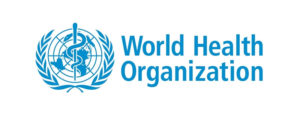 People in prison have higher rates of drug use and injecting than the general population, and people with drug-related problems make up a significant proportion of people in prison. Among high-risk drug users in the community, many will have repeat experience of prison. The likelihood of having contracted an infectious disease is higher among high-risk drug users with a prison history than among those who have never been incarcerated, and the risk of overdose death in the immediate period after release from prison is high.
People in prison have higher rates of drug use and injecting than the general population, and people with drug-related problems make up a significant proportion of people in prison. Among high-risk drug users in the community, many will have repeat experience of prison. The likelihood of having contracted an infectious disease is higher among high-risk drug users with a prison history than among those who have never been incarcerated, and the risk of overdose death in the immediate period after release from prison is high.
Such were the talks during the World Health Organization (WHO) international meeting on prisons and health, held in Lisbon, Portugal, on 11–12 December 2017. The meeting participants proposed some conclusions for wider dissemination to all those who could improve the current position worldwide with respect to drugs and drug-related harms in prison, which continue to challenge prison systems and the wider community:
Taking note of the current facts and figures regarding drugs and drug-related harms in prisons worldwide and the high rate of post-release mortality, as presented to the meeting by acknowledged international experts,
Based on the evidence and experience of recognized experts in addressing drugs in prisons and their related harms, such as HIV, hepatitis B and C, and tuberculosis (TB), as well as mental health problems,
Justified by the available evidence on effective harm-reduction measures, encouraged by the proven beneficial results obtained from initiatives such as opioid substitution treatment in prison and overdose prevention before release in other countries in the world,
Aware of the potential for prisons to contribute to global public health protection and hence to a reduction of health inequalities by allowing opportunities to intervene in a vulnerable and high disease-burdened population which would impact on wider community health outcomes,
Understanding that effective prevention depends on early recognition of those at risk at all stages of the criminal justice system,
Emphasizing the fact that drug treatment in prisons must not be isolated from health services available in the community,
Recognizing the significantly higher level of tobacco-smoking behaviour among people in prison and the opportunity to support smoking cessation in prison settings,
Considering the health and economic burden of alcohol-related violence and the potential of prison settings for the delivery of effective alcohol interventions to achieve better health and rehabilitation outcomes for prisoners,
Acknowledging the standards set out in the United Nations Standard Minimum Rules for the Treatment of Prisoners (also known as the Nelson Mandela Rules), including Rule 24, on providing the same standards of health care in the prison setting as in the community and ensuring continuity between the two, and Rule 25, on paying particular attention to addressing health care needs that may hamper rehabilitation,
This meeting recognized the need for consideration of the following measures, programmes and guidelines aimed to reduce drug use and its associated harms in prison and invites policy-makers, health and justice professionals, and prison administrators to:
- Implement a “whole-of-government approach” to prison health care, ensuring that the health and social care needs of people in prisons are considered in all policies, taking account of the need for integration between prison health and wider public health and social care systems, and recognizing prisons as a setting in which to address health inequalities, improve health and thereby reduce reoffending;
- Operate within a framework of equivalence of health care outcomes between prison and community based on need and the requirement for continuity of care between community and prison;
- Treat the person as a whole, including psychosocial support as well as effective pharmacological treatment, recognizing that drug treatment should take account of wider health and social care issues;
- Ensure that service design is informed by research evidence and that service delivery is evaluated by audit and/or appropriate implementation data that take into account the prison setting and the transition into the community from custody, requiring multiagency partnership work and a systems leadership approach to health;
- Develop and agree minimum staffing levels (both healthcare and custodial staff) and skill mix; ensure appropriate training and professional development for all staff to assure improvements in service delivery, acknowledging the challenges of working in a prison setting and the opportunities for all staff to impact on rehabilitation and reducing recidivism;
- Encourage use of the United Nations comprehensive package of services to address HIV, TB, and viral hepatitis B and C; and undertake prison reform measures to improve living and working conditions, and broader criminal justice reforms to develop, adopt and implement alternatives to conviction or punishment and to reduce the excessive use of pre-trial detention.
The World Health Organization (WHO) international meeting on prisons and health, held in Lisbon, Portugal, on 11–12 December 2017, brought together more than 100 experts in the field of prison and public health from 30 countries worldwide; besides the WHO Regional Office for Europe, several other international and European agencies were represented, including the European Monitoring Centre for Drugs and Drug Addiction (EMCDDA), the Council of Europe’s Pompidou Group, the European Centre for Disease Prevention and Control, the United Nations Office on Drugs and Crime, and the Ministry of Health and the Ministry of Justice of Portugal; support was provided by Public Health England (PHE), the UK Collaborating Centre for the WHO Health in Prisons Programme (HIPP).
Source: WHO



